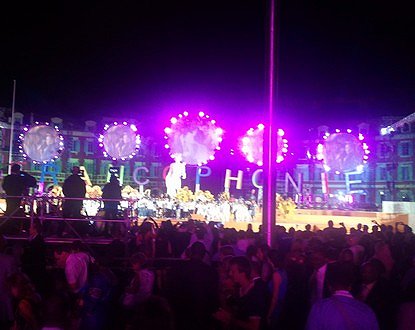During the splendid opening ceremony of the Francophonie Games, rapper Kery James and his group performed and set the rhythm with a piece called “Banlieusard.” Eric Ciotti and Christian Estrosi immediately expressed their ire: “This song that calls for revolution in the suburbs had no place here,” while disclaiming all responsibility: “The presence of Kery James was not planned. It was imposed by the Élysée through Yamina Benguigui, which is scandalous!” Given that Christian Estrosi is the president of the National Committee of the Francophonie, this statement seems hard to believe.
Being present at the opening ceremony, we did not hear the famed boos from the audience, but rather applause at the end of the song’s performance, perhaps out of relief because it was somewhat too long and monotonous.
This unnecessary controversy is hard to understand as there is no incitement to revolution (in its commonly attributed sense) in this text, which talks about “inequalities in today’s France” and positively invites reaction.
So, why ignite the fire of a controversy that is not one, just a solitary exercise? It is difficult to give credence to Eric Ciotti’s assumption that sees the long hand of the Élysée behind the rapper’s musical performance. It’s easier to see it as his obsession with criticizing the President of the Republic, his government, and his ministers in every act and circumstance.
Moreover, attacking Madame Benguigui so unduly is not only inelegant but also off-target. Hasn’t the President of the General Council seen that the Minister is not a formidable political adversary but a kind lady full of goodwill without real political weight?
This verbal misstep deserves censorship and sends its author back to the use of less aggressive communication tools: It is not necessary to bombard one’s neighbor several times a day to remain the center of attention.
As for rapper Kery James, it is commendable that, through music, he has found his path and success gives substance to his call to “react.” Good for him, and we wish him well. Furthermore, his pseudo-philosophical sermons do not interest us much.
And finally, if we must really talk about the “banlieusards,” the real ones, we prefer to think of all those who couldn’t express their talent due to lack of opportunity and sometimes because of discrimination. Even more so to all the anonymous people who, every day, do and endure with courage and dignity many things in the hope of having a better life for themselves and their children.
Shouldn’t our illustrious elected officials calm down a bit?


